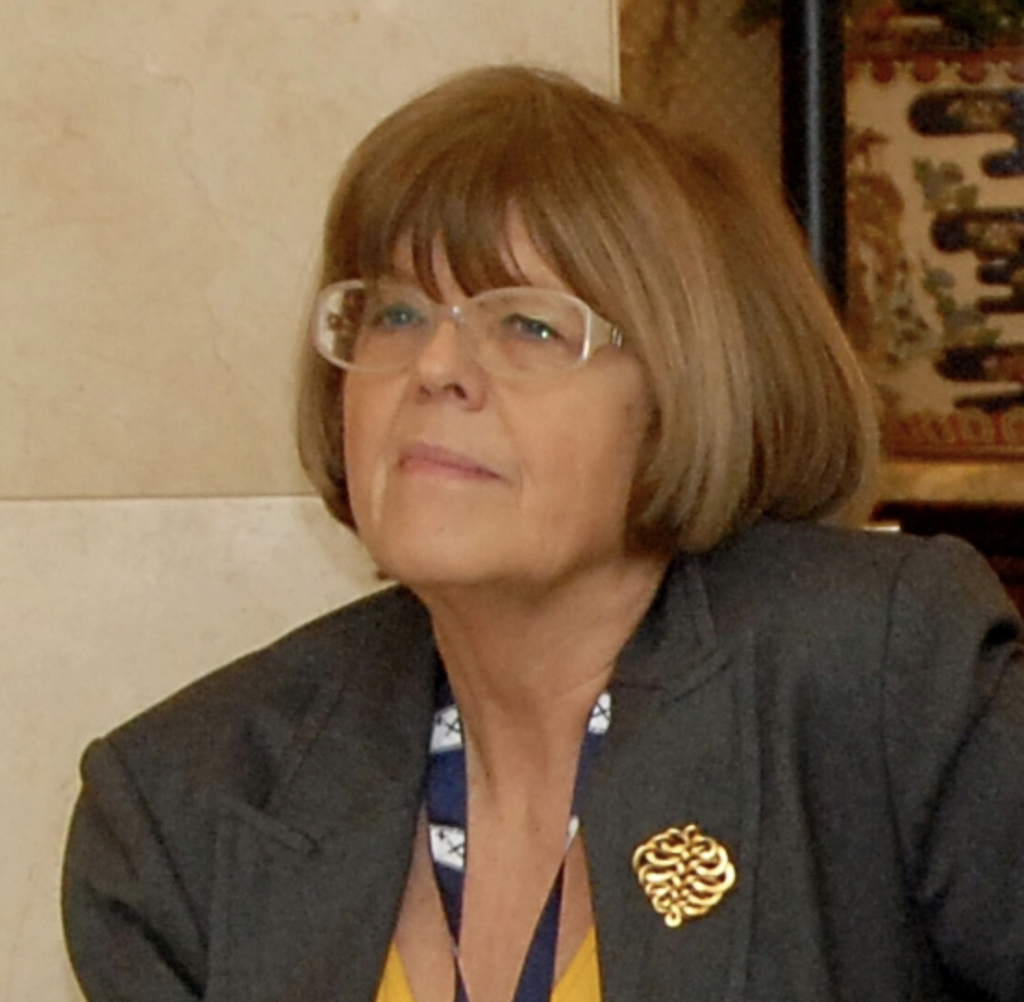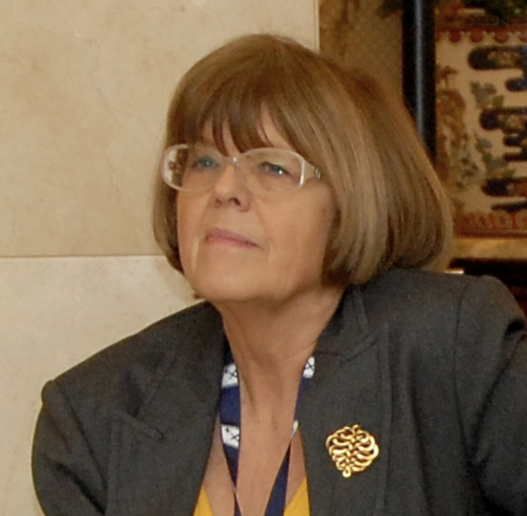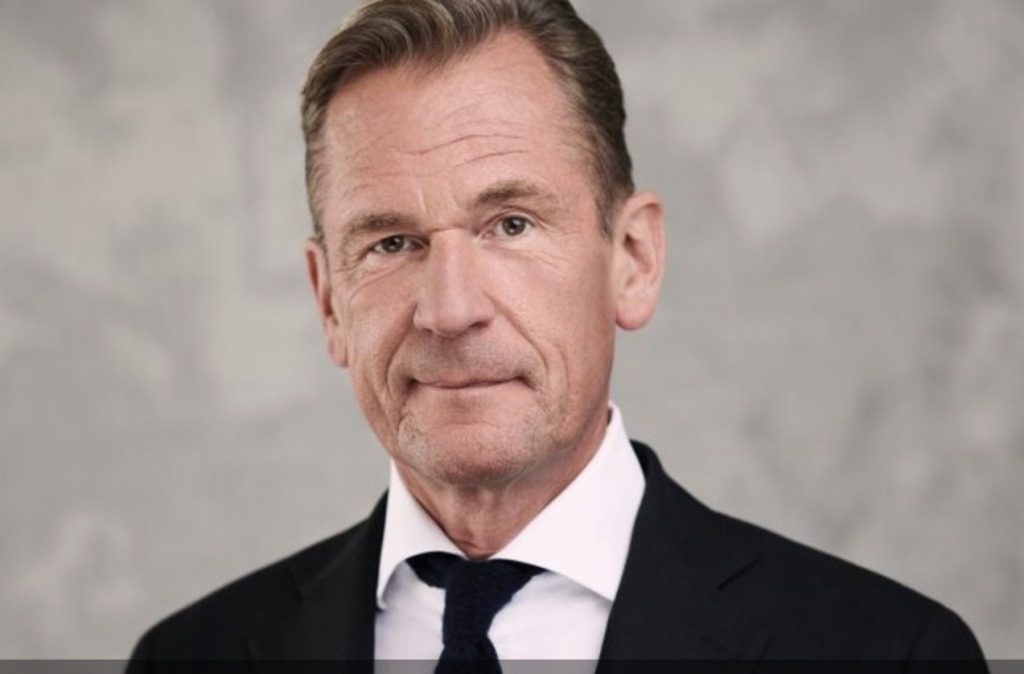ANNA BALLETBÒ
IN TELEFÓNICA, AS IN POLITICS, IT IS NOT THE LARGEST SHAREHOLDER, NOW SAUDI ARABIA, THAT GOVERNS, BUT THOSE WHO ADD UP

I say well surprised that a transaction of such volume, 2,100 million euros, in a strategic European company has been done with such secrecy and slowness so as not to alert, that the same Executive President of the Company, José María Álvarez-Pallete confessed that he had not found out until the day before the news was published. And that is precisely what is most surprising. For years now, the Gulf countries have been calculating not only the volume of their oil reserves, but also the time frame in which demand will be drastically reduced due to theeffects of climate change and the rise of alternative energies. At the same time are studying new investments to place their profits in strategic sectors that could become as desirable and profitable assets as oil and oil products have been in the last 50 years and especially in the last 10 years.
To give you an idea, in 2016, 20% of global crude oil demand was accounted for by cars: 19 million barrels per day to move 900 million cars. In 2021, global oil demand in road transport reached approximately 43.7 million barrels per day.
According to forecasts by the director of the Energy Research Center of the National Autonomous University of Mexico (UNAM), Claudio Estrada Gasca, there are only 42 years to go before the planet’s crude oil reserves run out, 65 years to go before the same thing happens to the planet’s crude oil reserves. natural gas, and 150 for coal. Should we be surprised by the strategic moves of those countries focused on a powerful but unique industrial activity based on the exploitation and export of energy, oil and gas? It does not seem so; rather, what is surprising is that it has taken them so long to take notice and they have only been concerned with regulating the markets to stabilize prices via OPEC without having to act as rambunctious exporters.
China has been engaged in to promote and control a new silk route by sea, with the acquisition of control of more than 100 ports in the world in more than 60 countries to ensure the expansion of its global market by controlling the movement of containers. The Chinese state-owned company, Cosco, acquired 51% of the port of Piraeus (Greece), under an agreement that would allow it to obtain up to 67% five years later. The same company is in talks to acquire a stake in the port of Hamburg, Germany; if completed, it would be Cosco’s eighth port investment in Europe. Meanwhile, Shanghai International Port Group, has just taken control of the Israeli port of Haifa. All this as part of port expansion, in the context of the Maritime Silk Road.
This initiative is part of a broader plan to invest Chinese capital in infrastructure projects around the world. To achieve this objective, analysts point out that it is essential to have control of port concessions at geostrategic points. And they seem to be succeeding. Chinese-invested container ports have experienced an above-average increase in their shipping connectivity, says Jan Hoffmann, head of the Trade Logistics Unit at the United Nations Conference on Trade and Development (UNCTAD).
From a historical point of view, Sam Beatson, Professor in the Department of Finance, Risk and Banking and in MBA programs at the University of Nottingham Business School (NUBS), UK, argues that, in this Chinese effort, “there is no desire to do so in a threatening manner. The key element driving the port strategy of Chinese companies is greater control and efficiency in their global maritime business, and the pursuit of opportunities to participate in nearby development projects.“.
Other researchers, such as James R. Holmes, Professor of Maritime Strategy at the U.S. Naval War College, have a more confrontational perspective: “The U.S. Naval War College has a more confrontational perspective.The goal is to create a self-sustaining cycle between trade, military power and diplomatic influence. Access to overseas ports enables China to develop trade networks and increase wealth“.
The Arab energy, oil and gas producing countries have intensified in recent years the purchase of companies listed in the West, taking advantage of the higher profits derived from the exploitation of hydrocarbons. Its objective is basically economic, as seeks to diversify its investments to generate additional income outside oil and gas in the event that production and/or consumption of both may decline in the future.
Telefónica is not an isolated case. It is just the latest Western takeover by abundant Arab capital. The purchase of the 9.9% stake in the Spanish operator already in the hands of the Saudi telecommunications company STC Group for 2.1 billion euros, the maximum limit allowed by law in order not to require prior authorization by the Government, is perceived by many as something new and even threatening, but the truth is that at present, neither one nor the other.
OTHER PURCHASES IN SPAIN
Telefónica joins the list of Spanish companies with investments from the Middle East. The sovereign wealth fund Qatar Investment Authority (QIA) is the main shareholder of Qatar Investment Authority (QIA). Iberdrola, with 8.7%; it also owns 19% of the shares of Iberdrola, with 8.7%. Colonial, Spain’s largest socimi by asset volume; Qatar Airways has a 25% stake in Colonial, Spain’s largest socimi by asset volume; Qatar Airways has a 25% stake in IAG airline group, , to which they belong. Iberia and Vueling; Mubadala Investment Company, the sovereign wealth fund of the United Arab Emirates, owns 63% of Iberia and Vueling. Cepsa also became a shareholder of Enagás with a stake of more than 3%, making it the fifth largest shareholder of the energy group.
The participation of Saudi capital in Spanish listed companies had not been significant until now, after its entry into Telefónica, but it has had a presence in various operations. For example, the celebration of the Supercopa de España from 2020, the purchase of 17 hotels of the Meliá Group by the Saudi fund ADIA for 600 million euros, its stake in El Corte Inglés or the construction of a synthetic fuels plant in the Port of Bilbao by the oil company Aramco together with Repsol.
LOOKING FOR INVESTMENT OPPORTUNITIES
The case of Spain is a drop in the ocean. These purchases are in response to a much broader strategic plan of global investments to try to diversify the Gulf states’ revenues. Their governments, in the hands of royal dynasties, use their sovereign wealth funds, fed by oil and gas revenues, to drive major projects domestically, but also investments of all kinds around the world, including in the US, Europe and Asia.
For me, the surprising thing is that in Europe in general and in Spain in particular, we have not opted for organize the gathering of sensitive information concerning those companies that we consider essential and/or strategic, not to fence off the markets, but to know in advance what is happening and above all that their CEOs should not be informed by the media at the last minute. To Mrs. Von der Leyen such information would help her better understand what is happening in the capital market and Europe’s role on the world stage. To know the capital movements of two or three hundred European companies would bea good guide to avoid surprises. If we had some informants in the main markets where the main stock exchanges operate, we would have an interesting picture of flows by sector. we would see the lizards coming with enough time to tickle them if that is what is strategically essential. Embassies can help a lot and they know about these tasks.
And finally, reminds us that although the Saudi company STC Group has become a majority shareholder in Telefónica, it is now the majority shareholder in Telefónica. formally does not command. The group headed by Isidre Fainé holds a 5.9% stake in Telefónica through Criteria, 2.4%, and in CaixaBank, 3.49%. For its part, BBVA has a shareholding position close to 5%, it is only necessary that they have a coffee from time to time to exercise with command and if they need more, they can call some of us small depositors who have some Telefónica shares that I already put at the disposal of Isidre Faine in case he needs them. It is necessary to be patriotic with the one who was first Catalan bank at the time and now remains the first, but of all Spain. What a thing !!!!!!
Anna Balletbò is a Spanish journalist, president of the Olof Palme International Foundation.
This article was originally published in La Hora Digital. If you plan to use it, you are required to cite that source.



